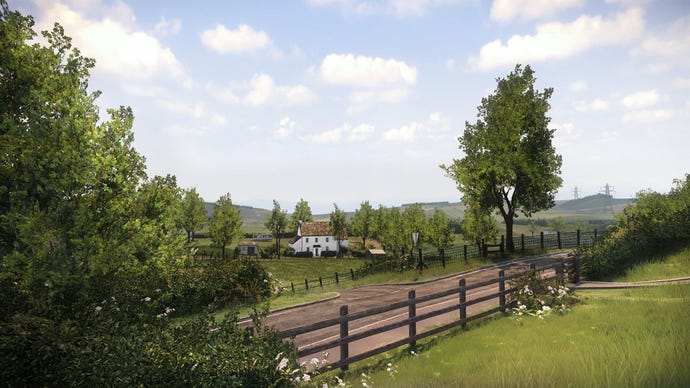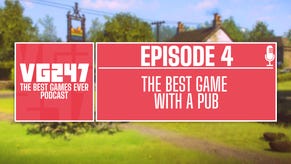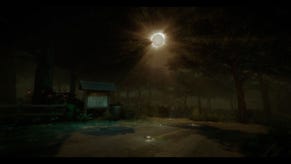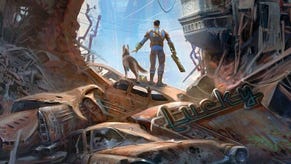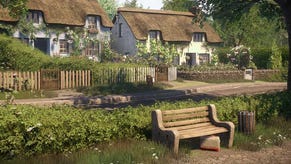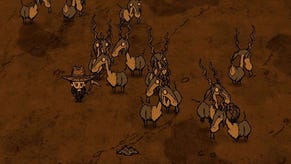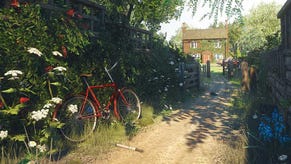Everybody's Gone to the Rapture Interview: "Normal Life Where Something Unimaginable is Happening"
The Chinese Room's Studio Manager Tom Turner reveals five things about Everybody's Gone to the Rapture that you mightn't know.
This article first appeared on USgamer, a partner publication of VG247. Some content, such as this article, has been migrated to VG247 for posterity after USgamer's closure - but it has not been edited or further vetted by the VG247 team.
At a recent Sony digital showcase event, I got the chance to sit down with Tom Turner, Studio Manager of The Chinese Room and talk about Everybody's Gone to the Rapture. Here's what he told me about the game.
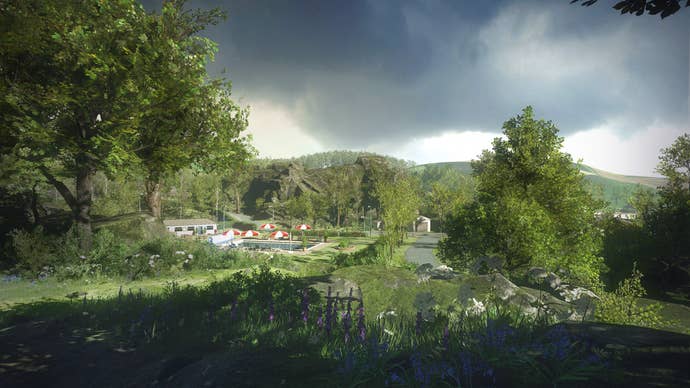
The end-of-the-world scenario is different from most post-apocalyptic games.
"Everybody's Gone to the Rapture is a story about the end of the world like no other. It's set in a Shropshire village in the Midlands of Great Britain during the mid 80's. It's an open world, story-driven mystery and it's about regular people experiencing a catastrophic, earth-shattering event – how they react to this, how they relate to each other, and what happens to them in this particular time."
"You often find in games that have apocalyptic, end-of-the-world scenarios that they tend to have fantastical, epic-type settings. Everybody's Gone to the Rapture is about you and me sitting in our living rooms experiencing the end of the world, and how normal people would react to that. That's part of the reason that makes the game different and compelling. We’re treading territory that developers don't normally explore – normal life where something unimaginable is happening."
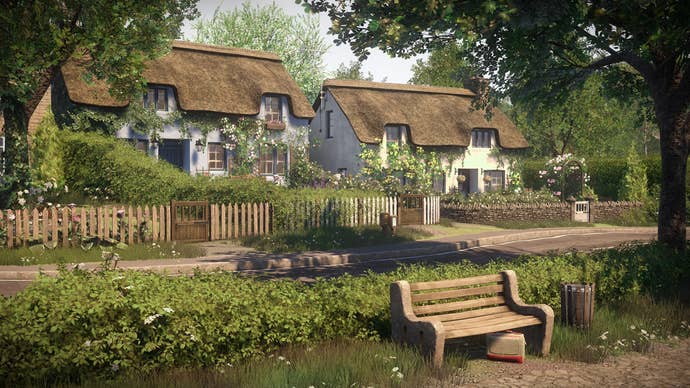
The gameplay is the story.
"The key theme of the heart of the game is discovery. It's open world. You can go where you want and uncover the story in any order you want. There's no funneling. No set cut scenes. We don't force the player in any way, shape or form. What we're really allowing the player to do is craft their own story and their own experience in the game world at their own pace and in an order that makes sense to them as they're exploring."
"I would say the gameplay itself is the story, and the uncovering is the crafting of your own personal version of the story. There are a number of different mechanics to do this. You have recordable events that come through radios, telephones, TVs. You find out very early on that someone out there is broadcasting statements on what is happening. Basically, you go up to a device and press a button to activate it."
"Then there are passive events that you trigger just by walking up to them. These are memories and imprints left by events that happened prior to the cataclysmic events that happen prior to you starting the game. Basically, they’re about regular people talking about regular life. This is what makes the game so relatable and really hits home with you. We've had absolutely fantastic voice actors recording the story, and the groundedness of the scenario comes across in their performances."
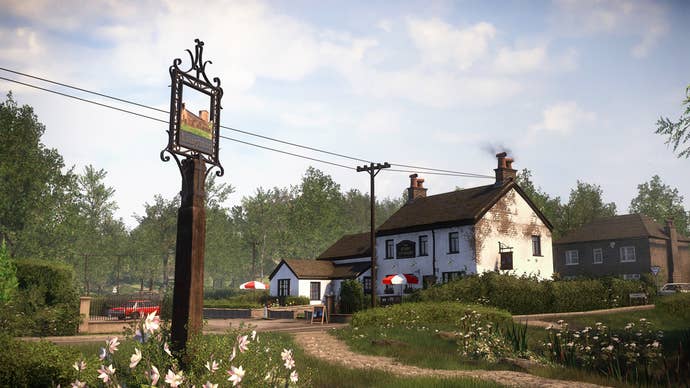
The environments are uniquely British.
"One of the things that's really important to the game is authenticity. We really, really wanted it to look and feel like Britain. The game is made in CryEngine, which is brilliantly suited to large open vistas and the type of foliage and greenery that we were going for. The thing is, when you look at the game, you see the lay of the land, the types of architecture and the lushness of the greenery and you can only be in one place in the world – the English countryside."
"This was a great challenge for the art team, but I think they nailed it. You really think that this is an English village. The game is set in the mid 80's, and while we don't want it to be a nostalgia trip, we did try to infuse the game with the feeling of the 80's. In hindsight, we tend to think of the 80's as being slightly drab, and maybe not the most stylistic of eras. That has been a great challenge for the art team – to take this era that has a certain perception and make it look beautiful and to bring out that stylization by placing products and features from the era. That's been critical to giving the game a really unique and definite grounding and sense of place."
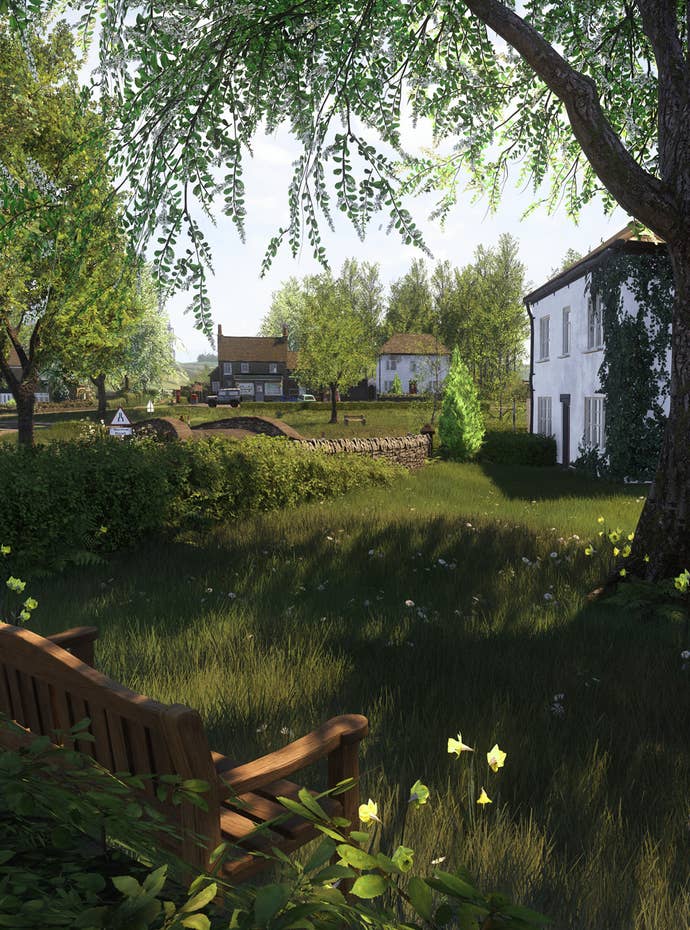
Everybody's Gone to the Rapture was inspired by old British sci-fi shows.
"The key inspiration has been British sci-fi of the 1970's and going on to the 80's – shows like Day of the Triffids. That had a massive, massive impact on the type of story, the tonality of the game, the progression of the events."
"It's gone through a lot of iterations to get to where it is now. It's a story our co-Directors Dan Pinchbeck and Jessica Curry conceived. For our studio in particular, having made Dear Esther and Amnesia: A Machine for Pigs, the interplay between story and music is absolutely critical and infused into everything that we do in terms of development process. It all starts there, with the conceptualization of the story and music.
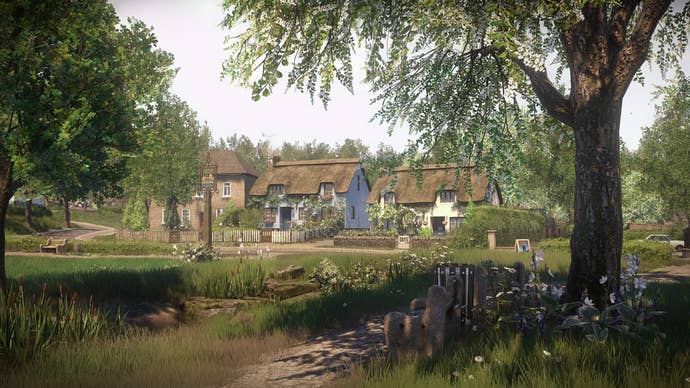
The audio is procedural and will be unique to each person's experience.
"Jessica Curry is our composer, and she's crafted a wonderful score that's on par with any movie I can think of. It's wonderfully detailed thematically, supporting all of the characters and events that happen in the game. It's really been a labor of love for her. It sounds typically British, taking inspiration from Vaughn Williams and Elgar, with her own unique compositional twist on the material."
"But what the game does when you're traveling between points, or just walking around the environment is that the procedural audio system takes various music tracks, pulls them apart and recombines them in a random arrangement, but crafts a concise piece of music that will be unique to you being in that place at that point. It may grab some strings from one track, and a soprano singer from another, and put that together as a music track for you."
"You have the story being uncovered in your own time in your own fashion in your own order. You've got music being dynamically crafted as you progress, so it is a deeply personal story that you're experiencing here."
